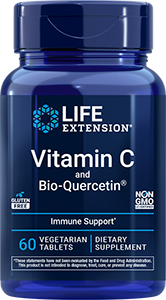
Newsletter
Newsletter
Young, healthy men who consumed plant-based extracts experienced increased testosterone

The results of a recent randomized, controlled trial revealed a significant increase in levels of the hormone testosterone among healthy men aged 21 to 35 years who consumed a blend of extracts of pomegranate fruit rind and cocoa seeds.1
The trial included 119 men who received 200 or 400 mg of the pomegranate-cocoa combination or a placebo daily for eight weeks. The men were also advised to engage in 40 minutes of aerobic exercise four days a week throughout the study, however, they were not involved in a resistance training program.
Men who received the higher dose had significant increases in both free (unbound) and total testosterone at 4 and 8 weeks compared to the placebo and their levels at the beginning of the study. At the high dose, men who received pomegranate-cocoa also experienced significant improvements in hand grip strength and mid-upper arm circumference at eight weeks. The extract combination was found to be safe and well tolerated.
So why would pomegranate and cocoa have an impact on testosterone levels? The authors of the report observed that punicalagin, an active compound in pomegranate, is a potent antioxidant, which can lower oxidative stress (a factor that interferes with testosterone production). Furthermore, research suggests that theobromine, which occurs in cocoa, may promote testosterone production in the testes.
“Testosterone plays a critical role in regulating metabolic processes in the body that helps maintain a balance between body fat content and muscle mass in males,” the authors wrote. “Besides the male sexual developments at puberty, testosterone has anabolic effects on bones and muscles, enhances libido, penile erection, mood, and cognition in adults. In men, testosterone maintains general health and improves the overall quality of life measures, including reducing stress and anxiety, the elevation of mood, and self-control.”
They concluded that pomegranate-cocoa extracts have potential promise for young men to improve physical performance and quality of life.
Products
Apply What You've Learned: Testosterone
- Testosterone is produced by both men and women; however, the level of this hormone in men after puberty can be more than 15 times higher than levels in women of any age.2 A healthy level of testosterone is needed by men throughout their adult lives to help maintain sexual vitality, stable mood, healthy weight, and bone, nervous system and metabolic health.3-7 Blood tests are a good way to monitor testosterone and related hormone levels.
- Prescription hormone replacement therapy isn’t the only option to support healthy testosterone levels. In addition to pomegranate and cocoa seed extracts, DHEA and Tribulus terrestris (which contains a compound that converts to DHEA in the body) may help support the production of testosterone.1,8,9
- Aromatase is an enzyme produced in the body that converts testosterone to estrogen. Research findings indicate that luteolin, a flavonoid that occurs in some fruits and vegetables, decreases the activity and expression of this enzyme, and thus may increase testosterone as well.10
- Testosterone therapy may also benefit postmenopausal women with low sexual desire and sexual dysfunction, according to a Global Consensus Position Statement on the Use of Testosterone Therapy for Women published in 2019.11 DHEA also has been well-studied and shown to increase testosterone levels in women.8
References
- Sreeramaneni PGA et al. J Diet Suppl. 2022 Feb 6;1-17.
- Handelsman D et al. Endocr Rev. 2018 Oct; 39(5): 803–829.
- Almeida OP et al. Arch Gen Psychiatry. 2008 Mar;65(3):283-9.
- Kelly DM et al. Obes Rev. 2015 Jul;16(7):581-606.
- Välimäki VV et al. J Clin Endocrinol Metab. 2004 Aug;89(8):3785-9.
- Ahlbom E et al. Brain Res. 2001 Feb 23;892(2):255-62.
- Allan CA et al. Int J Impot Res. Sep-Oct 2007;19(5):448-57.
- Li Y et al. Exp Gerontol. 2020 Nov;141:111110.
- Adimoelja A. Int J Androl. 2000;23 Suppl 2:82-4.
- Li F et al. J Pharmacol Exp Ther. 2014 Nov;351(2):270-7.
- Davis SR et al. J Clin Endocrinol Metab. 2019 Oct 1;104(10):4660-4666.
Featured Life Extension Magazine® Article
A Solution for Brain Fog, by Lisa Tanner
“Brain fog” is a term used by many people to describe a condition of mental fatigue and difficulty concentrating. While most of us experience the condition from time to time—such as when we’re under stress or haven’t had a good night’s sleep—for people with certain conditions (such as allergies), brain fog can occur frequently.
Fortunately, two plant extracts have been identified that help clear the fog, so to speak. Mango leaf extract contains the compound mangiferin which protects the brain by lowering oxidative stress and inflammation. Peppermint oil contains monoterpenes, which also benefit brain function. Participants in a clinical trial who received a high dose of peppermint oil that contained 60% monoterpenes demonstrated improvements in cognitive tasks and experienced less mental fatigue than those who received a placebo.
These ingredients may decrease mental fatigue and boost memory, attention and cognitive performance.
What's Hot
Health Concern
Meta-analysis concludes testosterone improves women’s sexual well-being
A review and meta-analysis reported in The Lancet Diabetes & Endocrinology on July 25, 2019 concluded that testosterone hormone replacement for women improves sexual function and well-being.

Male Hormone Restoration
This protocol will help you understand comprehensive hormone restoration and how it can support your health when combined with proper medical care, good diet and plenty of exercise.
Related Life Extension Magazine® Articles

Boost Testosterone Without Drugs
As men age, their testosterone tends to bind to a blood protein rendering the testosterone unavailable to cells throughout the body. A plant-based formula increased free testosterone by 48% in a human study.

In The News: Low Testosterone Linked to Higher Mortality Rate
Low testosterone linked to higher mortality rate; plant foods associated with gut microbes that lower disease risk; CoQ10 improves mild, daily fatigue; and more.
Life Extension Magazine® Issue Now Online
A remarkable number of healthy-longevity findings have been published over the past 18 months.





